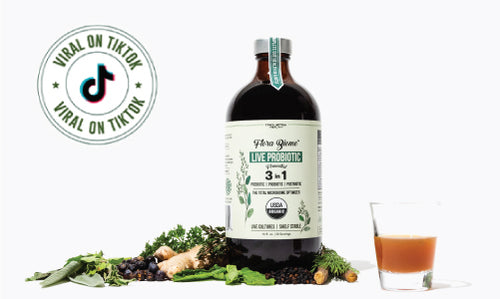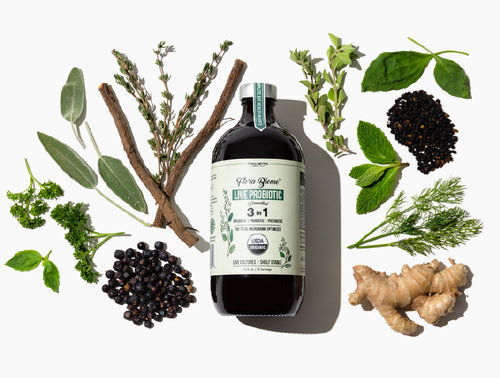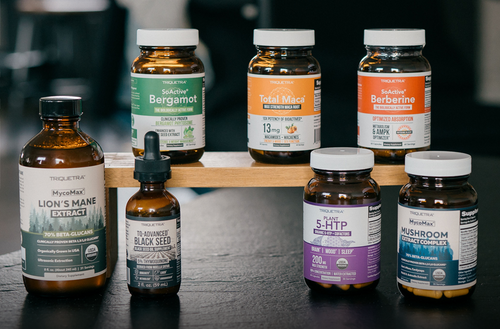Why we ferment foods

We have been fermenting foods such as kombucha, sauerkraut, yogurts, and cheeses for centuries. Not only does this process extend the food's shelf life and enhance its flavor, but current research is also showing that it has incredible health benefits for our gut and intestinal tract. Fermentation has not really changed over the thousands of years that it's been in use. The fermentation process happens when microorganisms such as yeast and bacteria break down the food and convert the starches and sugars into alcohol or acid. This conversion acts as a natural preservative. The probiotics (good bacteria) from this process protect your gut and digestive system from the harmful bacterias that we naturally consume daily and make food easier to digest.
Health Benefits of Fermented Foods
Your gut is a complete ecosystem of a trillion bacteria that play a role in more than just the importance of your digestive health. The gut interacts with the central nervous system by regulating brain chemistry and influencing neuro-endocrine systems associated with stress response, anxiety, and memory function. In addition, your microbiome health (the community of bacteria in your gut) is essential for warding off harmful bacteria, boosting the immune system, and preventing inflammation in the body.

Studies show that the community of bacteria in many American's guts is changing compared to a century ago. This change is suspected to be from our diets being heavy in foods filled with preservatives and the regular use of antibiotics, killing the bad bacteria and the good bacteria in our guts.
These changes in the balance of a gut microbiome can lead to more bad bacteria than good and can begin to break down the intestinal wall and allow the contents to start leaking into your blood. The leaking could eventually lead to food allergies or intolerances and something called "leaky gut syndrome." The fermentation process and probiotics found in fermented foods help improve the health of the digestive tract and ward off harmful bacteria.
The word probiotic means "For Life," and research continues to prove the benefit of probiotics in the last decade. Traditionally fermented foods are the primary source of probiotics. Establishing a healthy microbiome as early as possible is extremely important to the health of your gut later in life and adding in probiotics is essential to this whole process. Eating fermented food is a natural and easy way to do this.
Not All Fermented Food Is Created Equal
With all of this being said, we are not recommending that you buy your weight in pickles at your local grocery store. It is essential to understand that not all fermented food is created equal. Some of the jarred and pickled items you will find at your local grocery store are pickled using vinegar. If the product contains live cultures and probiotics, it should read "naturally fermented." Other fermented items, such as cheese, are fermented but don't contain probiotics. On the other hand, Yogurt is a great dairy product to receive a daily dose of probiotics.
Best Fermented Foods

- Yogurt
- Kefir
- Sauerkraut
- Kombucha
- Pickled Vegetables
- Flora Biome
Flora Biome is a live probiotic that uses the natural fermentation process. With ten probiotic strains, 19 fermented herbs, and 15 billion CFU (colony-forming unit), it replicates a healthy gut and acts as a prebiotic, probiotic, and postbiotic. Everything needed to restore and preserve your microbiome is in Flora Biome.
No matter how you decide to receive your probiotic, we encourage you to add more fermented foods to your diet and "listen to your gut" regarding your digestive health. If you fear you may have issues with your gut health, Check out our article, 5 Most Common Digestive Health Issues, and Natural Solutions.









